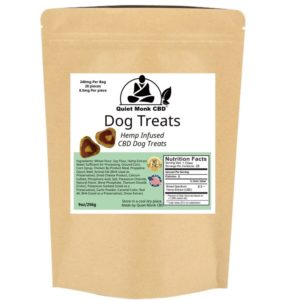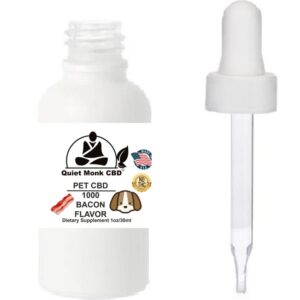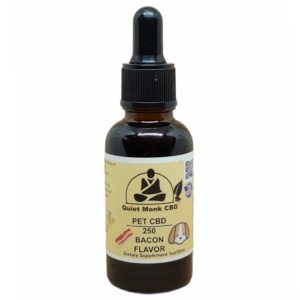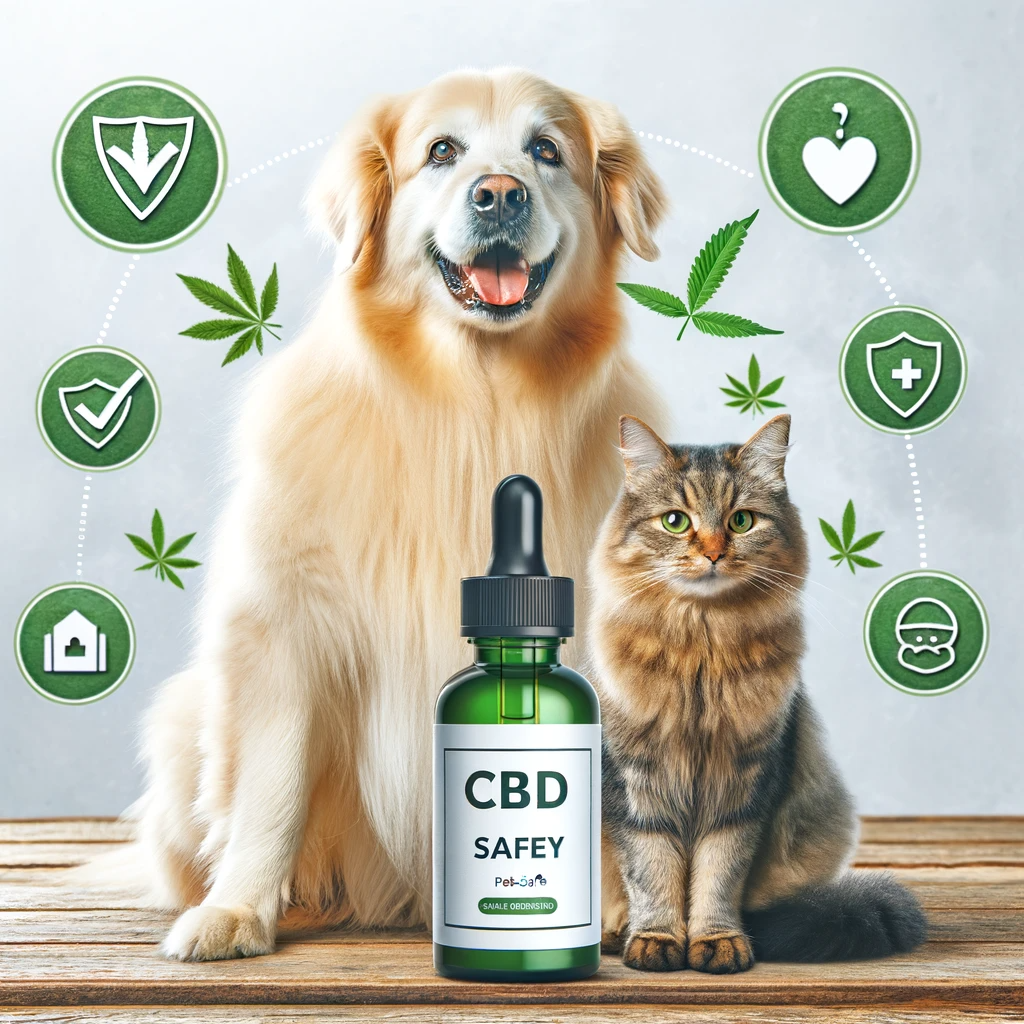
Introduction to CBD for pets
Pets are beloved family members, and CBD is the latest trend for pet wellness. Studies suggest that CBD’s non-psychoactive component could help to reduce stress, pain, and swelling. But before hopping on this trend, it’s important to become educated about its safety for your pet.
CBD for pets can be relatively safe when sourced from reliable and trusted companies, without dangerous additives, pesticides, or heavy metals. Always consult your veterinarian and begin with a low dose while keeping an eye on their behavior.
Yet, some research points to potential side effects like diarrhea or tiredness in some cases due to high doses or bad reactions. It’s best to buy products that come with certificates of analysis from third-party laboratories testing quality assurance.
Before administering any product, read the instructions carefully about dosage and form suitable for your pet since each animal has physical differences like age and weight that can affect their tolerance levels.
Be thoughtful of what you decide for your pet; always research before buying or using any product on them. Don’t compromise their well-being, since they rely on our care. Give your furry friend the gift of relaxation without the worry of them taking your stash – CBD for pets has them taken care of!

Benefits of CBD for pets
CBD’s Positive Effects on Your Pet’s Overall Health
CBD has proven to be an effective natural remedy to alleviate multiple issues in pets. This powerful compound offers a variety of benefits to improve the general wellbeing of your furry friend.
The benefits of CBD for pets include:
- Reduces Anxiety: CBD can help alleviate anxious feelings in both dogs and cats, making them calmer and more relaxed.
- Relieves Pain and Inflammation: Pets with arthritis, joint pain, or general inflammation can benefit from CBD’s anti-inflammatory properties.
- Promotes Cardiovascular Health: CBD has the potential to promote a healthy heart and improve blood circulation in pets.
- Minimizes Seizure Activity: CBD has anticonvulsant properties, which can control and reduce seizures in pets with epilepsy.
- Treats Skin Conditions: CBD oil has been shown to soothe irritated and itchy skin, preventing inflammation and infection.
It’s important to note that not all CBD products are the same, and it’s essential to understand the quality of the CBD oil you’re purchasing for your pet. Look for a brand that uses high-quality, organic ingredients and has a third-party lab test for purity and potency.
Don’t miss out on the opportunity to improve your pet’s overall health with the use of CBD. Consider adding it to your pet’s daily routine for enhanced wellbeing. Consult with your veterinarian to find the best CBD products for your furry friend.
Even Fido deserves a pain-free existence, and CBD might just be the answer to his chronic maladies.
Pain relief
CBD products have analgesic properties, making them great for pet pain management. Cannabinoids interact with the endocannabinoid system, reducing inflammation and discomforts caused by conditions like arthritis, cancer, and neuropathy. This alternative treatment might even lessen the need for harmful meds, letting pets feel relief without side effects.
CBD can also be a preventative measure for chronic pain, by curbing inflammation and oxidative stress. Regular use of CBD oil or treats can help keep pets healthy and happy.
Pro Tip: Always check with a vet before giving your pet CBD treatments. Dosage and administration methods vary depending on the pet’s condition and needs. Who needs a therapist when you can give your pet CBD and be their emotional support animal?
Anxiety and stress management
CBD is a natural remedy that helps pets manage their stress and anxiety. It’s a great choice for owners who prefer holistic approaches. Signs of anxiety or stress in pets can include: restlessness, shaking, pacing, panting, destructive behavior, and even aggression.
CBD works with the body’s Endocannabinoid System (ECS). This system regulates mood, appetite, pain-sensation, and sleep. CBD affects how the ECS functions, which can help with stress-related symptoms. CBD also has anti-inflammatory properties. This can be helpful for pets with chronic pain and anxiety. Plus, it doesn’t have any psychoactive effects, as it contains less than 0.3% THC.
Jane’s dog was really anxious during car rides and would scratch the backseat, causing damage. After introducing CBD into her dog’s diet for two weeks, she saw a big change in his behavior. Now, he enjoys car rides without any anxiety-related incidents.
CBD can also help boost your pet’s appetite. So, your furry friend may start to love mealtime even more!
Improved appetite
Many pet guardians have seen the positive effects CBD can have on pets’ appetites. It stimulates the endocannabinoid system, which increases hunger and regulates metabolism. This makes animals more likely to want food.
CBD also helps to calm anxious or stressed pets, which can help their appetite. Anxiety and depression can make pets lose their appetite, but with CBD, they can feel more relaxed and be encouraged to eat.
Plus, CBD is renowned for its anti-nausea properties. This stops vomiting after meals, so pets can keep a healthy appetite and enjoy their food without any discomfort.
If you want to help your pet’s appetite, think about using CBD. Consult a vet to work it into your pet’s daily routine and support their overall health and wellbeing. Let CBD be their superhero!
Anti-inflammatory properties
CBD has anti-inflammatory properties. It interacts with the endocannabinoid system to reduce inflammation, oxidative stress and modulate immune function.
Plus, CBD can help with anxiety, depression, digestion, appetite, sleep and blood sugar levels. It’s safe for animals when used as directed.
Adding CBD to your pet’s routine can make a huge difference. So, talk to a vet first – just to be sure.
And remember, CBD’s safety measures are way ahead of Volvo’s! Your pet is in good paws.
Safety of CBD for pets
As a pet owner, it is important to know the potential risks and benefits of any treatment. CBD usage for pets is increasing, and the safety of CBD for pets is a common concern among pet owners. CBD appears to be safe for pets, but it is important to use products designed for pets, as THC can be harmful to pets. Additionally, it is recommended to consult with a veterinarian before giving CBD to pets.
Moreover, CBD has potential therapeutic benefits for pets, including reducing anxiety, pain, and inflammation. The endocannabinoid system in pets is similar to humans, suggesting that CBD could be a promising option for pets. However, research on the usage of CBD for pets is limited, and it is important to monitor any changes in behavior or symptoms closely.
Interestingly, a study published in the Journal of the American Veterinary Medical Association found that CBD oil significantly reduced seizures in dogs with epilepsy. The study concluded that CBD oil may have therapeutic potential for controlling seizures in dogs with epilepsy.
If your pet starts acting like a stoned teenager, it’s probably time to re-evaluate their CBD dosage.

Side effects of CBD for pets
CBD use in pets can have some possible side effects. These can be changes in behavior, reduced blood pressure, or gastrointestinal issues.
- Behavioral changes: Your pet may become sluggish or overly active.
- Blood pressure: This could happen when given higher doses of CBD.
- Gastrointestinal issues: Pets with sensitive stomachs might vomit or have diarrhea after consuming CBD.
It’s important to note that the severity and frequency of these symptoms vary from pet to pet. Plus, it’s necessary to consult a vet before giving CBD to your pet. They can help decide the correct dosage and monitor any side effects during treatment.
Moreover, studies have shown that long-term CBD use in some animals may bring about liver damage. This highlights the importance of monitoring and consulting with a professional prior to beginning treatment.
For example, a Labrador Retriever called Max had severe inflammation and pain from arthritis which caused him difficulty in movement. His owners gave him CBD oil for pain relief after being prescribed by a veterinarian. The medicine helped Max’s mobility a lot, but he had mild episodes of vomiting during the initial treatment stage. After adjusting the dosage on professional advice, the vomiting went away.
Too much CBD can turn your pet into the Hulk, so remember to watch out for any side effects!
Risks of overdosing on CBD for pets
CBD for pets can be dangerous if they get too much. Symptoms like nausea, vomiting, and even liver damage can show up. Administer the correct dosage to your pet to stay safe.
Start with a tiny amount of CBD and increase it slowly until you reach the right amount. Monitor your pet closely to see how they respond and adjust the dose as needed. Different animals may need different amounts depending on their size, weight, and health condition. Talk to the vet before giving any CBD to your pet.
Be careful when buying CBD products. Some may have additives that can be harmful or even toxic to animals. A study by the Journal of the American Veterinary Medical Association revealed that 70% of CBD products for pets had incorrect labeling for the CBD content. Get high-quality CBD from reliable sources.
It’s important to keep our furry pals safe and healthy when introducing any medication. A suitable CBD dose with proper guidance can avoid overdosing risks in pets. Make sure to consult your vet and read the labels before giving CBD to your pet.
Factors to consider before giving CBD to your pet
Before administering CBD to your furry companion, it is crucial to consider various aspects that can determine its safety and efficacy.
The following are some important considerations:
- Dosage: Seek advice from a veterinarian to determine the right CBD dosage for your pet, based on its breed and ailment.
- Quality: Opt for high-quality CBD products that use organic hemp, without any toxic substances, solvents or pesticides.
- Side effects: Monitor your pet’s behavior and health closely to detect any unusual symptoms or reactions to CBD consumption.
It is imperative to note that CBD can interact adversely with other medications your pet is taking, and consulting with your vet is crucial before commencing CBD treatment.
When administering CBD to your pet, ensure to start with a low dosage and gradually increase it over time. It is also advisable to use CBD products with minimal THC content, as THC can have adverse effects on pets. Additionally, using treats that have CBD infused in them can make administering CBD to your pet a hassle-free experience.
Sorry Fluffy, you’re too old and fat for this CBD trend. Looks like it’s just you and your joint pain, pal.
Age and weight of the pet
When thinking of giving CBD to your pet, it’s vital to consider things like their age and weight. The correct dose can change a lot depending on these facts, so you should consult a vet.
To help you understand how age and weight affect dosage, we made this table:
| Age (yrs) | Weight (lbs) | Dose |
|---|---|---|
| < 2 | < 10 | 1-5 mg |
| < 2 | > 10 | 2-8 mg |
| > 2 | < 10 | 0.5-7.5 mg |
| > 2 | > 10 | 1-15 mg |
This table’s only a general guide. Each pet’s needs might differ due to breed, health, etc.
You should also think about any medications they take, and the seriousness of their condition.
Pro Tip: Always chat with a reliable vet before giving CBD. This will guarantee the right dose and stop any bad interactions.
Remember: giving CBD to a pet with a health issue is like giving a teen Red Bull before a math test!
Underlying health conditions
Before giving CBD to your pet, consider any medical conditions they may have. Factors like breed, age, weight and medical history can affect how CBD interacts with your pet’s system. It’s best to talk to a vet before giving CBD.
If your pet has existing health issues, such as liver or kidney problems or a history of seizures, there is a higher risk of adverse interactions with CBD. Medications like blood thinners may also interact badly. Side effects can include lethargy, loss of appetite and vomiting.
Monitor changes in mood and behaviour when giving CBD to pets with existing health issues. Start with small doses, then increase gradually. This can reduce the risk of side effects.
Vets can provide insights into the optimal dosage for your pet’s needs, based on their current medical conditions. Don’t put your pet at risk. Talk to a vet before giving any medication or treatment, like CBD oil. This helps you make an informed decision about administering suitable treatment and avoiding adverse effects.
When it comes to giving your pet CBD, quality is more important than quantity – unless you want your furry friend to be higher than a kite!
Quality and dosage of CBD products
When giving CBD to your pet, it’s essential to watch out for quality and dosage. Make sure the product is pure and free from contaminants. The amount should be based on weight and health.
For Quality:
- – Look for organic hemp.
- – Check the COA for lab reports.
- – Avoid artificial additives.
- – THC-free.
For Dosage:
- – Dose according to pet weight.
- – Start low and increase slowly.
- – NEVER administer human dosage.
- – Consult with a vet before treatment.
Every pet has different sensitivities. Age or medical conditions may affect how much they require. So talk to a vet before administering any cannabis-derived supplements. Surveys show 80% of vets have seen an increase in people seeking advice.
How to administer CBD to your pet? Just sneak it into their food and hope they don’t get the munchies!
How to administer CBD to your pet
CBD Administration for Your Pet: A Professional Guide
Administering Cannabidiol (CBD) to pets can be beneficial in helping them manage pain, anxiety, and other conditions. Here are five simple steps to follow when administering CBD to your pet:
- Consult with your veterinarian: Before administering CBD, it is crucial to consult with your vet. Your vet may advise on the right dose based on your pet’s health and weight.
- Choose high-quality CBD: Ensure you purchase high-quality CBD products that are specifically designed for pets. Check the label for the list of ingredients.
- Start with a low dose: Start with a low dose and gradually increase the amount until you achieve the desired effect. Observe your pet’s reaction to the CBD before increasing the dose.
- Determine the administration method: CBD for pets can be administered in various forms, including tinctures, edibles, and topical creams. Choose the method that works best for your pet and follow the instructions carefully.
- Monitor your pet’s progress: Monitor your pet’s progress closely after administering CBD. Keep track of the dosage, the method of administration, and any changes in behavior or symptoms.
Additionally, it is essential to store CBD products safely and out of reach of pets and children. Contact your vet immediately if you notice any adverse reactions.
Lastly, a real-life example where CBD has helped pets manage symptoms is Ashley’s story. Ashley administered CBD to her dog, Bella, to manage her anxiety during thunderstorms. Bella had become aggressive during storms, but after administering CBD, Bella was calmer and more relaxed.
Don’t let Fido suffer from CBD analysis paralysis, choose the right product like a boss.
Choosing the right CBD product
When picking the best CBD product for your pet, it’s vital to check several things.
- Work out the type suitable for the pet.
- Ensure it’s been made from great quality hemp.
- Check the strength for breed and weight.
- Make sure it has natural ingredients and no nasties.
Chat to the vet for advice on dosage, effects, and if it’s suitable. When introducing CBD for the 1st time, start with small amounts. Like Goldilocks, you want it just right – not too much, not too little.
Determining the right dosage
Figuring out the Right Amount of CBD Oil to Give Your Pet?
It’s essential to begin with small doses and gradually raise the amount depending on your animal’s weight, size, and condition. The formula used to figure out dosage is usually based on the pet’s weight, divided by the CBD concentration in the bottle.
Refer to product labeling guidelines to accurately determine the best dosage for your pet. Consulting a vet that knows about CBD is also a good idea. Knowing the right dosage methods helps owners give their pets the right amount of CBD, while reducing any bad side effects.
Pro Tip: Start with a low dose and slowly raise it until you get the desired results. Get creative with these methods to give your furry patients the right amount of CBD.
Methods of administering CBD to pets
Pets may benefit from cannabidiol (CBD) – a compound found in the hemp plant. Many ways exist to give this substance to pets, promoting health and preventing sicknesses.
- Oral Ingestion- Pet owners can administer CBD easily by mixing it with food or water.
- Topical Application- Owners apply CBD creams directly on their pet’s skin to help with joint pain or skin conditions.
- Inhalation- Vaporizing CBD is great for calming dogs during stressful times.
It’s important to understand how much CBD to give, depending on size and potency. Talk to a vet beforehand.
Studies show that CBD oil helps sleep patterns when given daily doses over time. Harvard Medical School’s Health Blog has published an article about this.
Remember: play fetch is the only high your pet should experience – not edibles!
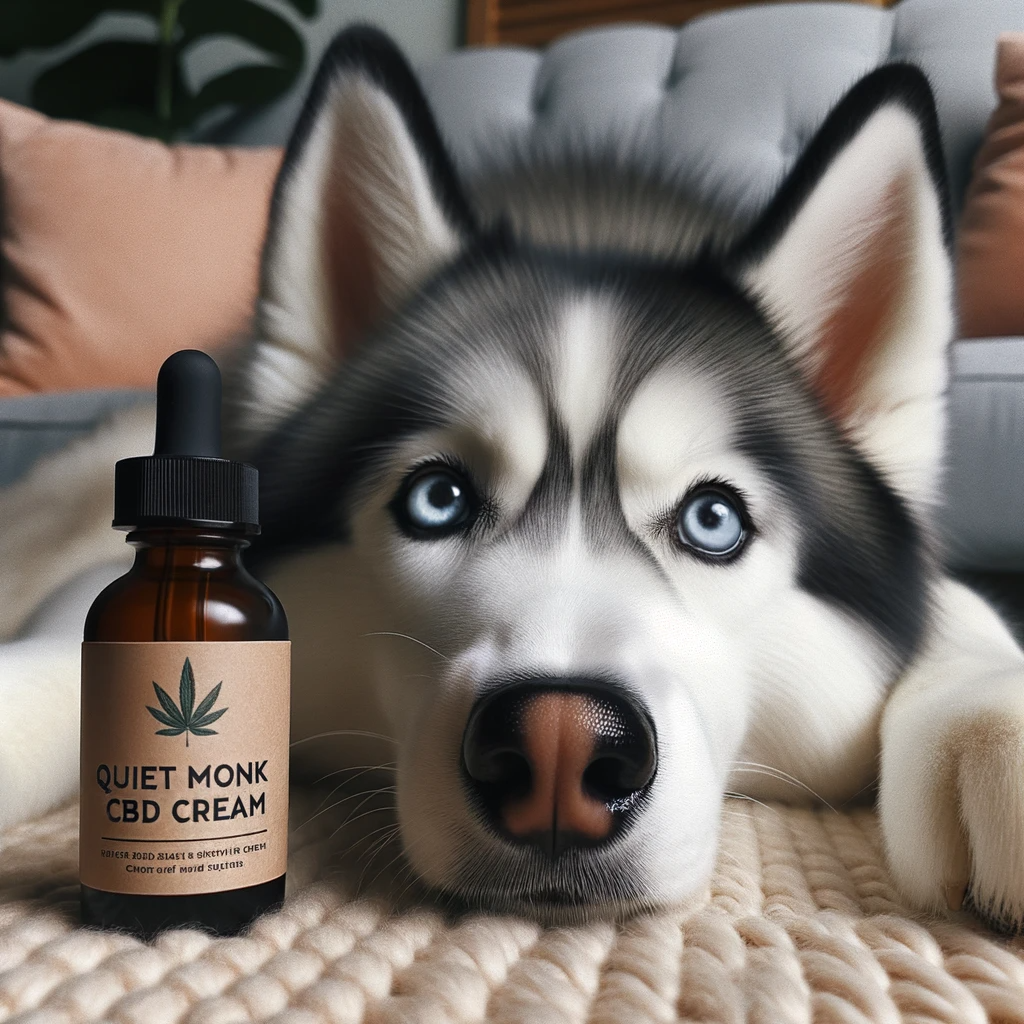
Conclusion: Should you give CBD to your pet?
Do we, as pet owners, wonder if CBD is safe for our furry friends? Yes, it’s no surprise that it has become popular among humans and is now an option for pets. But, consult with your vet first.
CBD can have good effects on pets. But, each pet’s medical history and condition are different. Vets who recommend it suggest a lower dose and watch the pet’s behavior. Check that the CBD oil has low THC levels.
When you talk to the vet about medicine for your pet, ask about any side effects or precautions. Meds used by humans, like aspirin or Tylenol, can hurt animals in small doses.
A study by Cornell University College of Veterinary Medicine had dogs take part in clinical trials. Dogs got 2mg per kg dose orally twice daily (gains compared to placebo control group).
Frequently Asked Questions
1. Is CBD safe for pets?
Yes, CBD is considered safe for pets when administered in proper dosages as recommended by a veterinarian.
2. What are the benefits of CBD for pets?
CBD can offer numerous benefits for pets, including anxiety reduction, pain relief, and improved mobility. It can also help to manage seizures and reduce inflammation.
3. What types of pets can benefit from CBD?
Both dogs and cats can benefit from CBD. However, it is important to ensure that the CBD product you are using is formulated specifically for pets.
4. Are there any side effects of giving CBD to pets?
Although uncommon, some pets may experience side effects from CBD such as dry mouth, drowsiness, or lowered blood pressure. However, these side effects are typically mild and temporary.
5. Can CBD interact with other medications my pet is taking?
Yes, CBD can interact with certain medications your pet may be taking. It is important to always consult with a veterinarian before administering CBD to your pet, especially if they are taking other medications.
6. How do I choose a safe and effective CBD product for my pet?
When selecting a CBD product for your pet, look for one that is formulated specifically for pets and has undergone third-party testing. It is also important to ensure that the product contains the proper amount of CBD and other ingredients and does not contain any harmful additives or contaminants.

